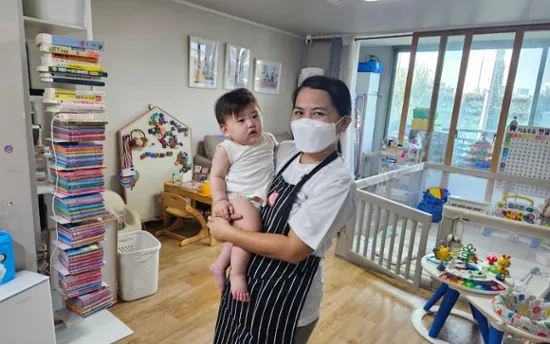
Filipino Caregivers' Escape Sparks Outcry Over Surveillance in Korea
2024-10-11
Author: Arjun
Introduction
Two Filipino caregivers working in Seoul made headlines last month when they departed from their workplace without authorization and were subsequently apprehended in Busan for working in illegal cleaning jobs. Their unexpected departure has raised serious concerns surrounding excessive surveillance imposed on migrant workers in South Korea.
Government Response
Philippine officials have cited oppressive monitoring as a key reason for the caregivers' escape, leading to urgent calls for compliance among the remaining 98 Filipino workers in Korea. The Philippine Department of Migrant Workers (DMW), led by Secretary Hans Leo Cacdac, has confirmed that they are closely monitoring the situation and cooperating with local Korean authorities who are investigating the incident.
Caregivers' Experience
Cacdac offered assurance that the Philippine government is committed to providing legal assistance to these workers, promising that they will not face any undue pressure during the ongoing investigation. Reports from the Filipino media outlet GMA revealed that the caregivers expressed feelings of being overwhelmed by their work conditions, particularly citing "overwatch"—a term indicating excessive surveillance, which in their case included strict curfews that required them to return to their accommodations by 10 p.m.
Pilot Program Background
The two caregivers had been part of a pilot domestic worker program, launched in August, which brought a total of 100 Filipino caregivers to Korea. Following their disappearance from their accommodations in Gangnam during the Chuseok holiday—one of the most significant holidays in Korea—their luck ran out after they were caught in Busan, with their new employment as illegal cleaners.
Changes to Regulations
In response to complaints about the previous curfew system, the Seoul Metropolitan Government lifted the restrictions on September 26, transitioning to a more autonomous system for the workers, allowing them greater freedom.
Ongoing Collaboration
Undersecretary Bernard Olalia also pointed out that the group of workers is undergoing various challenges as part of this pilot program and that collaboration with the Korean Ministry of Employment and Labor is ongoing to enhance overall support for Filipino workers adjusting to life in Korea.
Conclusion
"This program is still in its infancy, and we anticipate hurdles that need to be addressed. The concerned agencies are working diligently to solve these issues," Cacdac stated. This series of events not only highlights the plight of migrant workers but also opens a broader conversation about the necessary balance between worker oversight and personal freedom, a matter that is gaining traction in public discourse as more voices call for comprehensive reforms in Korea’s treatment of foreign laborers.


 Brasil (PT)
Brasil (PT)
 Canada (EN)
Canada (EN)
 Chile (ES)
Chile (ES)
 España (ES)
España (ES)
 France (FR)
France (FR)
 Hong Kong (EN)
Hong Kong (EN)
 Italia (IT)
Italia (IT)
 日本 (JA)
日本 (JA)
 Magyarország (HU)
Magyarország (HU)
 Norge (NO)
Norge (NO)
 Polska (PL)
Polska (PL)
 Schweiz (DE)
Schweiz (DE)
 Singapore (EN)
Singapore (EN)
 Sverige (SV)
Sverige (SV)
 Suomi (FI)
Suomi (FI)
 Türkiye (TR)
Türkiye (TR)